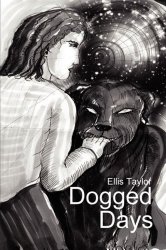 Walking Between Worlds~ Belonging to None
Walking Between Worlds~ Belonging to None
by Ann Andrews
ISBN: 978-0979175039
Publisher: Reality Press
www.reality-entertainment.com/realitypress/html/REPbooks.html
* This book was originally entitled, ‘Jason, My Indigo Child’ and was published by Wildflower Press.
Now published by Reality Press under the title of ‘Walking Between Worlds: Belonging To None’.
It has now been updated, expanded, and retitled.
In ‘Abduction’, the former Harvard psychiatrist John E. Mack describes his research thus:
‘What is unique to the investigation of the abduction phenomenon… is the necessity for human consciousness to expand in order to allow us the capacity to conceive beyond our present technological abilities and perceptions of reality…’
This process can be, and usually is, a very frightening one. One of the troubling paradoxes of the human condition is our strange resistance to having our horizons broadened. Those who are cursed to attempt it have an unfortunate habit of being crucified for their efforts, sometimes literally.
Fortunately no such extremities have yet been visited upon today’s subject, though his family might disagree. His public profile is still reasonably low, partly for these reasons. His initial experiences with representatives of the press (which I most assuredly am not) were negative to say the least. A boy of thirteen at the time, the general consensus amongst our muckraking friends was that Jason probably just needed to get a few more early nights and perhaps learn some manners.
Other experiences in this young man’s life, however, would certainly be regarded as extreme. No mere ‘abductee’, Jason- through an initially traumatic process of awakening- has since discovered that he is, to put it crudely, more than human. He is one of the line of ‘walk-ins’, a term popularized by the late Tuesday Lobsang Rampa, another pioneer who wasn’t always afforded the respect he deserved. What this all means is that Jason, by his own admission, is a star child, an ‘Indigo’: one of a number of keenly psychic young people with advanced healing and projection abilities.
As if this were not difficult enough, his mother has written a book about him. Ann Andrews has a remarkable journey of her own to relate, which echoes many of these themes; though the ‘star’ of her latest book is most assuredly her remarkable son. This, in fact, is a moot point, the sadness of which Ann wrestles with in the course of her writing. It would not be strictly accurate to describe Jason as (exclusively) Ann’s son, though from a terrestrial perspective this is the case. Ann is equally candid about the loss of a later (unborn) child- though, once again, ‘loss’ is hardly appropriate; these, the common dilemmas faced by the families of experiencers, are described with a decency and grace which probably only hints at the internal struggles she must have faced, but which is all the more affecting (and moving) for it. It is a book which every family in a similar position would do well to obtain, because it is for precisely these people that Ann has written it.
In Jason we are presented with a curious enigma. None of us enjoy realizing that we don’t know as much as we thought we did; it is particularly difficult to receive this news from a unsophisticated Kentish lad who- Ann informs us- is not above trying to better his mates at sinking pints of lager at speed and has a very ordinary fondness for Liverpool football club. This is the strange dichotomy of the ‘walk-in’, well known to John Mack, whose work sought to help such people integrate both their human and ‘alien’ identities. On the one hand Jason is an entirely ordinary- no offence intended- unspectacular young man. On another hand, spectacular barely covers it.
A crucial difference between Jason’s experiences and those of the case studies recorded by Mack and others, is that Jason appears to have undergone little or no hypnotic regression therapy. All of his knowledge has been arrived at consciously, with clear waking recall. This has enabled him to reach a level of spiritual maturation it is probably fair to say would ordinarily take lifetimes to achieve- as it doubtless has, even in his case. It also means, on the flip side, that he has been able to take little refuge in the hypnotic forgetting which allows most abductees to be cushioned from the terror of their experiences. Whatever he and his family have gone through, it has happened with stunning, undeniable frankness.
Many of the incidents recorded in the book strike the rational mind as quite impossible to accept. And yet, as one who has listened to Jason’s public addresses in the last twelve months, such is his quiet but obvious self-belief, in the end one has little choice but to accept his testimony at face value, however humbling this may prove to be. And yet, there potential for enormous growth in such a process; which in our own limited way, is equally as important and monumental an expansion as that which the likes of Ann and Jason have undergone. For, as John Mack also writes:
‘The abduction phenomenon by its demonstration that control is impossible, even absurd, and its capacity to reveal our wider identity in the universe invites us to discover the meaning of our ‘power’ in a deeper, spiritual sense.’
There is a strong line of argument which says that the reason the star people are amongst us now is to facilitate such an expansion in as many who would quietly listen to them. If that is the case, I am more than happy- in fact I am proud- to help this process by urging my readers to obtain and to feel the contents of this remarkable book.
Ben Fairhall
About Ben Fairhall


You must be logged in to post a comment.